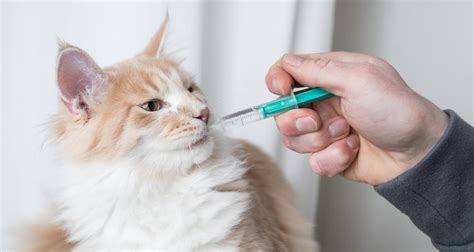Cats are beloved companions, but they can also be hosts to a variety of parasites that can affect their health and well-being. Parasite control and prevention are essential for ensuring the health and longevity of your feline friend. This comprehensive guide will provide you with everything you need to know about cat parasite control and prevention, including:

- Types of cat parasites
- Symptoms of parasite infection
- Diagnosis and treatment of parasite infections
- Prevention of parasite infections
Types of Cat Parasites
Cats can be infected by a variety of parasites, both internal and external. Some of the most common types of cat parasites include:
Internal parasites:
- Roundworms: These are the most common type of intestinal worm in cats. They are long, thin worms that can cause vomiting, diarrhea, and weight loss.
- Tapeworms: These are flat, segmented worms that can also cause vomiting, diarrhea, and weight loss.
- Hookworms: These are small, thin worms that can cause anemia and weight loss.
- Heartworms: These are parasites that live in the heart and lungs of cats. They can cause coughing, difficulty breathing, and heart failure.
External parasites:
- Fleas: These are small, wingless insects that feed on the blood of cats. They can cause itching, irritation, and hair loss.
- Ticks: These are small, parasitic arachnids that feed on the blood of cats. They can transmit a variety of diseases, including Lyme disease and Rocky Mountain spotted fever.
- Mites: These are small, wingless creatures that can cause itching, irritation, and hair loss.
Symptoms of Parasite Infection
The symptoms of parasite infection in cats can vary depending on the type of parasite. However, some common symptoms include:
- Vomiting
- Diarrhea
- Weight loss
- Anemia
- Coughing
- Difficulty breathing
- Itching
- Irritation
- Hair loss
Diagnosis and Treatment of Parasite Infections
If you suspect that your cat may have a parasite infection, it is important to take them to the vet for diagnosis and treatment. The vet will perform a physical exam and may also order blood tests or fecal tests to confirm the diagnosis.
The treatment for parasite infections will vary depending on the type of parasite. Some common treatments include:
- Deworming medication
- Flea and tick prevention
- Mite treatment
- Heartworm prevention
Prevention of Parasite Infections
The best way to prevent parasite infections in cats is to follow a few simple steps:
- Keep your cat indoors as much as possible.
- Use flea and tick prevention medication on a regular basis.
- Deworm your cat regularly.
- Keep your cat’s environment clean and free of debris.
- Avoid feeding your cat raw meat or fish.
FAQs
1. How often should I deworm my cat?
Cats should be dewormed every 3-6 months, or more often if they are at high risk for parasite infection.
2. What is the best flea and tick prevention medication for cats?
There are a variety of effective flea and tick prevention medications available for cats. Your vet can help you choose the best one for your pet.
3. How do I know if my cat has heartworms?
The symptoms of heartworms in cats can be subtle, so it is important to have your cat tested for heartworms on a regular basis. Your vet can perform a blood test to check for heartworms.
4. Can I treat parasite infections in my cat at home?
No, it is important to take your cat to the vet for diagnosis and treatment of parasite infections. There are a variety of effective medications available for treating parasite infections, but they should only be used under the supervision of a veterinarian.
5. What are the risks of parasite infections in cats?
Parasite infections can cause a variety of health problems in cats, including vomiting, diarrhea, weight loss, anemia, coughing, difficulty breathing, itching, irritation, and hair loss. Some parasite infections can also be fatal.
6. How can I prevent parasite infections in my cat?
The best way to prevent parasite infections in cats is to follow a few simple steps:
- Keep your cat indoors as much as possible.
- Use flea and tick prevention medication on a regular basis.
- Deworm your cat regularly.
- Keep your cat’s environment clean and free of debris.
- Avoid feeding your cat raw meat or fish.
Conclusion
Parasite control and prevention are essential for ensuring the health and longevity of your cat. By following the tips in this guide, you can help keep your feline friend parasite-free and healthy for years to come.





















